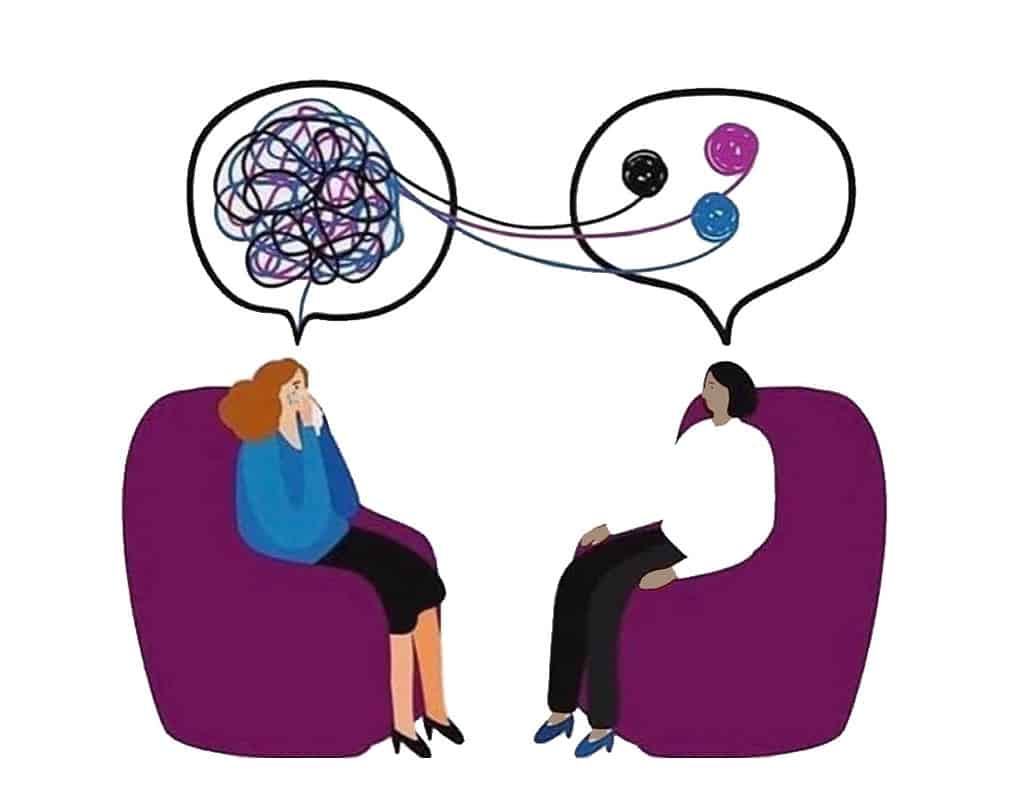Counsellor or psychologist?
Counsellors and psychologists are both professionals who offer support to individuals facing difficulties, but knowing the difference between the two is important in ensuring you get the right support.
So what is the difference between a counsellor and a psychologist?
Let me explain…
Similarities …
Accredited counsellors recognised by the Australian Counselling Association (ACA) or the Psychotherapy And Counselling Federation of Australia (PACFA) will have a minimum of a Bachelor’s Degree in counselling and psychotherapy (ACA levels 2-4) or an equivalent diploma (ACA level 1) with adequate CPD and clinical supervision. Accredited Psychologists (those recognised by the Australian Psychological Society or the Australian Health Practitioners Regulatory Agency) have studied psychology for a minimum of 4 years. Membership to each of these professional bodies requires there members to be suitably qualified, have public liability and indemnity insurance, undertake a set amount of professional development each year, and undergo professional supervision.
Neither counsellors nor psychologists are legally permitted to prescribe medication. Psychiatrists are qualified medical practitioners who have gone on further from completing studies in medicine to specialise in mental health, and are able to prescribe medication for mental health issues.
As an individual or couple you may engage with either a counsellor or a psychologist, and there may be some overlap in the services offered.
Which one suits you best will come down to the way the therapist works, the approach they take toward the issues presented as well as healing and treatment, the degree of connection you feel with them, and their authenticity.
Differences…
 Counsellors apply integrative therapeutic models and approaches to assist individuals in understanding behaviours, emotions, issues and circumstances that cause distress and impede on daily living, and develop strategies for coping with and deriving solutions to these issues. These approaches are generally evidence-based, varied and may be used integratively. Counsellors will often seek to use therapies beneficial to their area of expertise, including Eye Movement Desensitisation and Reprocessing, Cognitive Behaviour Therapy, Dialectical Behaviour Therapy, Acceptance and Commitment Therapy, and Internal Family Systems, to name only a few.
Counsellors apply integrative therapeutic models and approaches to assist individuals in understanding behaviours, emotions, issues and circumstances that cause distress and impede on daily living, and develop strategies for coping with and deriving solutions to these issues. These approaches are generally evidence-based, varied and may be used integratively. Counsellors will often seek to use therapies beneficial to their area of expertise, including Eye Movement Desensitisation and Reprocessing, Cognitive Behaviour Therapy, Dialectical Behaviour Therapy, Acceptance and Commitment Therapy, and Internal Family Systems, to name only a few.
They work collaboratively with individuals to address systemic and environmental factors; unravel experiences, feelings and thoughts; and provide tools and a pathway moving forward. Issues may include trauma recovery (acute, chronic, complex), PTSD, cPTSD, mild to severe anxiety, depression, stress, anger, grief and loss, self-esteem, and relationship difficulties.
Counsellors do not diagnose medical mental illness according to symptoms, instead working with individuals to look at root causes and develop non-medical strengths-based long-term recovery and solutions. Counselling may involve short-term engagement for addressing specific issues with a client, or long-term psychotherapeutic approaches to address deeper and varied issues. Counsellors strive for holistic care and support, working for mind and body balance to achieve the best outcomes.
Psychologists specialise in behaviour as a result of mental processes and brain functioning. They diagnose medical mental illness according to presenting symptoms, and are trained to work with specific mental illnesses that impede an individual’s functioning, for example; chronic anxiety, chronic panic disorders, chronic depression, OCD, Bi-Polar, Schizophrenia, or Personality Disorders. To see a psychologist you will generally have completed a Mental Health Treatment Plan with your GP or be under the care of a Psychiatrist as well. Psychologists are also available to see privately outside of GP referral.
Psychology in general demands a higher fee for services than counselling. Psychologists charge up to $280 per 45-60 minutes (recommended APS 2022-23 schedule), while counsellors will charge up to approximately $170 per 60 minutes. If you are have a diagnosed mental health disorder and have completed a Mental Health Treatment Plan with your doctor you may be entitled to 6 Medicare rebated sessions per calendar year under the initial referral (with further assessment required for an additional 14 sessions) with a registered psychologist. Currently the Medicare subsidy is valued at up to $89.65 for a registered psychologist, with the gap payable by the client.
Many health insurance providers cover counselling services by a registered counsellor.
The difference in fees between counsellors and psychologists should not be interpreted as a difference in the quality of service as counsellors and psychologists perform different functions.
Which one is right for me?
To make the decision to try any form of therapeutic emotional support can be a confronting but life-changing step. Ultimately the most important aspect of finding a therapist that will be a good fit for you is to ensure that whoever you choose makes you feel safe and supported so that you can be your authentic self.
Someone who “gets” you and wants nothing more than to see you heal, grow and flourish.
It is also a good idea to look into whether your therapist of choice is registered with the appropriate governing organisation (ACA or PACFA for counsellors, APS or AHPRA for psychologists). Like any service we choose to utilise it’s important to realise that not every therapist we find will be our perfect fit, so don’t be disheartened if your first try isn’t the best. Keep searching until you find someone you connect with and in time you will reap the rewards.
If after reading this you’re still unsure which type professional support is the right step for you, give me a call 0402 017 425 or send me a message and together we can figure out which direction may be the best for you.
Fiona x
My name is Fiona Rogerson and I am an ACA accredited perinatal and Perth women’s counsellor, and Hypnobirthing (Mongan Method) Practitioner. I work with women and men to overcome emotional and psychological hurdles surrounding conception, pregnancy, postpartum, parenting and identity. I am also available to provide professional development training and workshops to various organisations. I am based south of the river in Perth and can be contacted by email at fiona@fionarogerson.com.au or phone 0402 017 425 or via my contact page7 (re
















